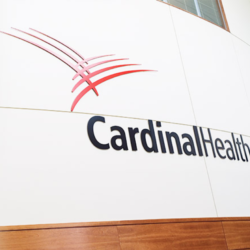Inventory problems for Cardinal Health and Under Armour

Earlier this month, two publicly listed companies saw the price of their shares fall sharply following reports of inventory issues: Cardinal Health Inc., a US-based wholesaler of drugs and medical supplies, and Under Armour, an American sportswear manufacturer.
Cardinal Health Inc. announced disappointing results for its last quarter and reduced its full-year outlook. This followed inventory write-downs in its Cordis business – the medical device unit which includes equipment such as catheters and stents – combined with a bigger than expected drop in generic drug prices. As a result, the share price dropped by more than 18%, bringing it close to its four-and-a-half-year low.
Since purchasing the Cordis business from Johnson & Johnson in 2015, Cardinal Health has faced ongoing operational difficulties regarding inventory. CEO Michael Kaufmann is quoted as saying that building an infrastructure outside of the US has been “more expensive than we thought, it hasn’t gone as well as we thought”. The company has struggled to sell its medical devices before their expiry dates, resulting in a large inventory write-off in the third quarter. According to a statement, Cardinal Health expects Cordis to be on “a path to profitable growth” by the end of 2019.
Under Armour
Meanwhile, Under Armour is another firm causing concern among analysts due to inventory problems. Although the company achieved a revenue increase, primarily from its international activities, its share price fell slightly amid fears that inventory levels and margin pressure could restrict future growth. In fact, the sportswear manufacturer’s gross margin was down slightly, and despite “accelerated inventory management initiatives” one analyst noted that inventory levels were still up by 27% to $1.1 billion.
Another group of analysts wrote that “the inventory levels continue to appear out of control, and the increase in receivables appears to highlight large shipments at the end of the quarter… The combination of high receivables and elevated inventory levels looks like a ticking time bomb to us,” leading them to rate Under Armour shares negative.






